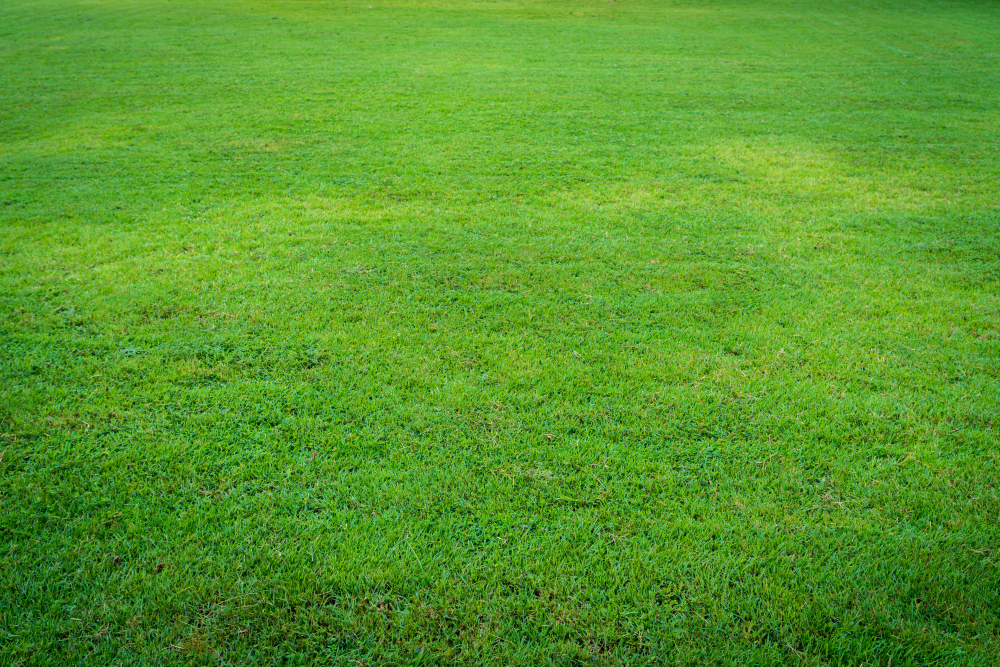Exploring the World of Turf Grass: Varieties, Characteristics, and Benefits

Turf grass is the centerpiece of any lawn or landscape, providing a lush green carpet that feels great underfoot and adds to the aesthetics of a property. But not all grasses are created equal, and choosing the right one can make a big difference in the appearance, maintenance, and durability of your lawn. In this blog post, we'll explore some of the most popular varieties of turf grass, their unique characteristics, and the benefits they offer. Whether you're looking to install a new lawn or renovate an existing one, this guide will help you make an informed choice.
1. Bermuda Grass
Bermuda grass is a warm-season grass that thrives in hot, sunny conditions and requires little water and fertilization once established. It has a fine texture and a medium to high density, making it ideal for high-traffic areas like sports fields, golf courses, and playgrounds. Bermuda grass is also highly tolerant of wear and tear, drought, and pests, making it a popular choice for homeowners who want a low-maintenance but durable lawn. However, its aggressive growth habit can make it difficult to contain, and it may require regular edging and trimming to keep it in bounds.
2. Zoysia Grass
Zoysia grass is another warm-season grass that is known for its thick, soft blades and drought resistance. It has a medium texture and a high density, making it a great choice for lawns, parks, and golf courses. Zoysia grass is also highly adaptable to different soil types and tolerant of shade, making it a versatile option for homeowners who want a lawn that can thrive in a variety of conditions. However, it can be slow to establish and may require more fertilization than Bermuda grass to maintain its rich green color.
3. St. Augustine Grass
St. Augustine grass is a popular choice for Florida homeowners who want a grass that can withstand the hot, humid weather and sandy soil of the region. It has a coarse texture and a high density, making it soft to the touch and lush in appearance. St. Augustine grass is also highly resistant to pests and diseases, making it a low-maintenance option for homeowners who want to avoid the hassle of constant lawn care. However, it can be sensitive to fertilizers and herbicides and may require more frequent mowing than other grasses to prevent thatch buildup.
4. Centipede Grass
Centipede grass is a warm-season grass that is known for its low-maintenance requirements and excellent drought tolerance. It has a fine texture and a low density, making it a great choice for low-traffic areas like residential lawns and parks. Centipede grass is also highly tolerant of acidic soil and low-nutrient conditions, making it a budget-friendly option for homeowners who don't want to spend too much on lawn care. However, it may not perform well in heavy shade or high-traffic areas and may require more frequent mowing than other grasses to stay healthy.
5. Kentucky Bluegrass
Kentucky bluegrass is a cool-season grass that is popular in northern climates for its deep green color and soft texture. It has a medium texture and a high density, making it ideal for residential lawns and landscapes. Kentucky bluegrass is also highly tolerant of foot traffic, making it a great choice for families with children and pets. However, it requires more water and fertilization than warm-season grasses and may go dormant in hot, dry weather, requiring more frequent watering to maintain its lush appearance.
Conclusion
Choosing the right variety of turf grass for your lawn depends on several factors, such as your climate, soil type, level of maintenance, and intended use. Each type of grass has its unique characteristics and benefits, from the soft feel of Zoysia grass to the low-maintenance requirements of Centipede grass. If you're looking for sod installers in Orlando, FL, contact From The Ground Up Landscaping today for free estimates and expert advice on which turf grass will best meet your needs. With the right grass, you can create a beautiful, durable, and healthy lawn that you'll enjoy for years to come.